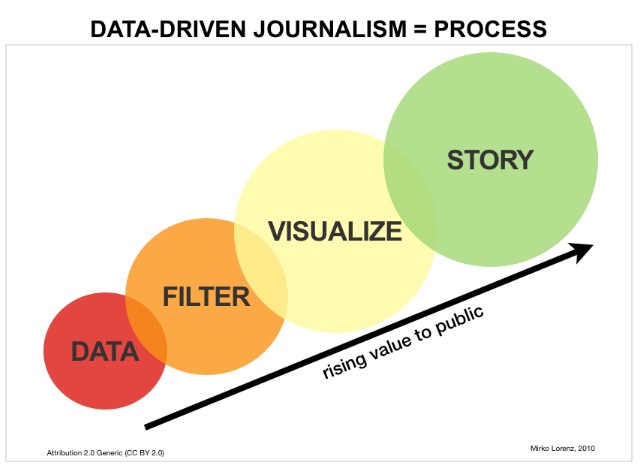Social science discovers data-driven journalism
 The social sciences can profit from data-driven journalism and vice-versa. Staff at the University of Zurich’s Institute of Political Science are so convinced of this that they’ll begin offering a major in data-driven journalism as part of their Master’s program starting in September 2013. The Institute’s head, Professor Fabrizio Gilardi, believes that the data-driven journalism course won’t just better qualify students for a career in the media. He also hopes that social scientists will start to utilize the techniques of data-driven journalism to present their research in more appealing ways. DW Akademie spoke to Gilardi about the new course.
The social sciences can profit from data-driven journalism and vice-versa. Staff at the University of Zurich’s Institute of Political Science are so convinced of this that they’ll begin offering a major in data-driven journalism as part of their Master’s program starting in September 2013. The Institute’s head, Professor Fabrizio Gilardi, believes that the data-driven journalism course won’t just better qualify students for a career in the media. He also hopes that social scientists will start to utilize the techniques of data-driven journalism to present their research in more appealing ways. DW Akademie spoke to Gilardi about the new course.
Professor Gilardi, why have you initiated the data-driven journalism course?
Political science imparts knowledge that isn’t that far removed from data-driven journalism. Our master’s students have to learn how to analyze and interpret data anyway and many of these methods are also applicable to data-driven reporting. On the other hand, data journalism makes use of other techniques such as web-scraping, data mining or data visualization which haven’t been adopted by the social sciences. As such, we believe that data-driven journalism can provide added value to our course.
Can journalists who work with data-sets also benefit from the social sciences?
Absolutely! [At the institute] we have specialist knowledge of political theories, which is something that is needed in political data-driven reporting. However, sociological approaches are not always included in such reporting. As social scientists, one of our strengths is in imparting analytical techniques, such as recognizing complex relationships. However, in journalism, information is often only presented descriptively. Frequently, unfortunately, social science findings are not adequately taken into consideration.
How can the situation be improved?
We scientists are also partly at fault because we often don’t present our research results in an attractive manner. This is how scientists can benefit from data-driven journalism. It helps us make our research more comprehensible, make it easier to digest. Being able to major in political data-driven journalism is a way of bringing science and journalism together. We all have something to gain.
Is this the first master’s major offered in data-journalism?
There are journalism courses that include data-journalism. But to my knowledge, internationally, we are the first political science course to offer data-driven journalism as a major.
Fabrizio Gilardi is professor of public policy at the Institute of Political Science at the University of Zurich.
Interview: Steffen Leidel (kh)





Feedback